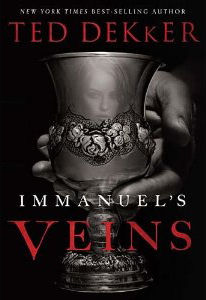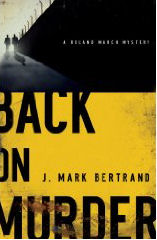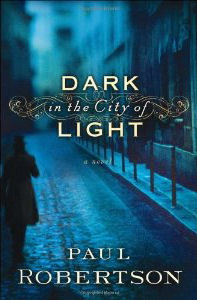by Jason Joyner | Nov 24, 2010 | Blog, CBA, decency, edgy, fiction, writing craft
Hello again. I’ve been trying to work more on my novel in progress, and have been dealing with a little blogger’s block. I’ve had a few thoughts, but haven’t known how to get them out. Time to get back on the horse!
So is it possible to have edgy AND decent fiction?
This has been a run-around topic for CBA fiction for a while. Christian fiction has been evolving over the last several years, perhaps not as fast as some would like, as there continues to be a debate about “edgy” Christian fiction. In fact, the term has become so loaded it is hard to define. For this post consider “edgy” as portraying real life without any filter on it (CBA is known for no cussing and no intimate scenes, not even between spouses).
By the way, I was partially inspired by Mike Duran’s blog deCOMPOSE because he offers a lot of thought-provoking content, usually about the state of Christian fiction. A recent post asks, “Am I responsible for what my characters say?” with the question being, “If my character says something mean, racist, sinful, etc., am I responsible or is the character responsible.” He also had a well-noticed post about “Christian fiction and the new edgy”. That post noted that some people’s edgy are other people’s obscene.
How can obscene be decent?
Perhaps “decent” is a loaded word too, considered a Puritan standard that isn’t realistic in our day and age. Maybe I’m looking at the word wrong, or using the wrong term. I’m thinking of decent as in the motivation one is using when writing something that may be edgy.
Much of our current pop culture fare comes with a shock value intended to gain notice. The edginess is just to catch people’s attention. Britney Spears continued a trend from Madonna, then Katy Perry picked up the baton with songs like “I Kissed a Girl,” and this was quickly followed by Lady Gaga and her wild antics. The motivation on doing something is, quite frankly, only to gain some kind of attention in our oversaturated world.
All media forms are subject to this, from movies, comics, books, TV…the list goes on. The motivation is caught between catching attention and/or flaunting old standards.
Is it possible to write something challenging, edgy, without leaving behind decency? I’d better use an example. I picture a story involving a rough-edged detective and a prostitute trapped in her circumstances that doesn’t pull punches showing the rawness of their lives. The point of the story is not to wallow in dirt, but to show the contrast of redemption against such bleak context. The motivation is good. The details are not used in a gratuitous manner, but to paint an accurate picture. The author keeps a standard of decency in their heart, writing things to serve the story rather than to shock, even if it means some cursing, a closer look into the prostitute’s life, or the violence on the streets.
Maybe I’m reaching with this. I don’t expect stardard CBA fare to embrace this of course. But is it possible to be honest with where the story needs to go, show just the details that are needed to establish credibility without wallowing in it, and keep a pure heart? I think so. I really believe a lot of what is done in pop culture is for the purpose of vulgarity alone, without adding value to the final product other than saying, “Look at me! I am worse than the last guy!”
I’m not even the guy that would want to read all of this. But as Mike has said before, showing someone violating God’s standards can be a powerful tool, even if it is uncomfortable reading about it.
Am I making sense? Am I out there on this one? Hey, your thoughts on this would be most appreciated!
—

by Jason Joyner | Sep 15, 2010 | Blog, CFBA, fiction, reviews, suspense, Ted Dekker
Read on below, to find out about a free giveaway contest!
This week, the CFBA Tour is featuring the latest thriller from Ted Dekker:
Is this the book that changes what Christian fiction can be about? First, the concept:
It is set in Eastern Europe in 1772, a time of war between the Russian and Turkish empires. The small principality of Moldova, neighbor to Transylvania, is wedged between these two powers, and is a strategic interest.
The empress Catherine the Great sends one of her best soldiers, Toma Nicolescu, to guard over the Cantemir estate. This noble family holds the key to politics in this critical area. It is ruled over by the matriarch Kesia Cantemir, and her twin daughters Natasha and Lucine.
Toma enters this world just as a neighboring duke begins to make his presence known to the Cantemirs. The dashing Vlad van Valerik has his sights on one of the Cantemir twins. But Toma has been smitten by one of the beauties as well.
As passions intertwine, a torrid love story bursts forth. Evil seduces. Death will be known. Love will bloom. And as the back copy says, “Blood will flow.”
—
Ted Dekker is one of the most imaginative writers in CBA fiction today. He writes taut suspense that seldom fails to grip the reader until the last page. He takes chances, and Immanuel’s Veins is a bold thrust against some of the prevailing themes in popular fiction right now.
Dekker will not win over the literati with this novel. This book has a strong idea, and it pushes that idea relentlessly. The two main characters are noble but flawed, and their choices have consequences. Other characters serve the plot, and are not fully fleshed out. In other books, this would bother me. In Immanuel’s Veins, this almost seems necessary, as it is a love affair between two people, in the best sense of the phrase.
It certainly is a sensual book. Dekker dedicates it to King Solomon, he who is often thought to be the author of the Biblical Song of Solomon. He doesn’t hold back in driving home the emotion. He doesn’t titillate, but some may not be able to handle the force he uses to write this book.
Some are saying this is Ted Dekker’s version of a vampire story. I suppose you could say that. Perhaps you should check it out for yourself.
The end point: I am a fan of Dekker’s, but not every book of his is a home run. Immanuel’s Veins is unique in his bibliography, and it is a significant contribution to what fiction can do. I enjoyed it, and I ponder it still. It certainly gets the blood pumping, and it may just be my favorite Dekker book.
He asks the question “what is sacrificial love?” It is a novel written to address that one idea. In conjuction with it, I wrote about it yesterday.
And what did I mean by “Is this the book that changes what Christian fiction can be about?”
Well it seems I’m out of time for today ;). Check back tomorrow for that thought.
And I promised a giveaway! One person who comments on this post will be chosen at random to win a special t-shirt designed by Dekker’s publisher to help share the message “spread the love”. It is a cool T, and I think you’ll like it! Leave a comment, and I’ll choose a winner by Monday, Sept 20.

by Jason Joyner | Sep 15, 2010 | Blog, CFBA, fiction, reviews, suspense, Ted Dekker
Read on below, to find out about a free giveaway contest!
This week, the CFBA Tour is featuring the latest thriller from Ted Dekker:
Is this the book that changes what Christian fiction can be about? First, the concept:
It is set in Eastern Europe in 1772, a time of war between the Russian and Turkish empires. The small principality of Moldova, neighbor to Transylvania, is wedged between these two powers, and is a strategic interest.
The empress Catherine the Great sends one of her best soldiers, Toma Nicolescu, to guard over the Cantemir estate. This noble family holds the key to politics in this critical area. It is ruled over by the matriarch Kesia Cantemir, and her twin daughters Natasha and Lucine.
Toma enters this world just as a neighboring duke begins to make his presence known to the Cantemirs. The dashing Vlad van Valerik has his sights on one of the Cantemir twins. But Toma has been smitten by one of the beauties as well.
As passions intertwine, a torrid love story bursts forth. Evil seduces. Death will be known. Love will bloom. And as the back copy says, “Blood will flow.”
—
Ted Dekker is one of the most imaginative writers in CBA fiction today. He writes taut suspense that seldom fails to grip the reader until the last page. He takes chances, and Immanuel’s Veins is a bold thrust against some of the prevailing themes in popular fiction right now.
Dekker will not win over the literati with this novel. This book has a strong idea, and it pushes that idea relentlessly. The two main characters are noble but flawed, and their choices have consequences. Other characters serve the plot, and are not fully fleshed out. In other books, this would bother me. In Immanuel’s Veins, this almost seems necessary, as it is a love affair between two people, in the best sense of the phrase.
It certainly is a sensual book. Dekker dedicates it to King Solomon, he who is often thought to be the author of the Biblical Song of Solomon. He doesn’t hold back in driving home the emotion. He doesn’t titillate, but some may not be able to handle the force he uses to write this book.
Some are saying this is Ted Dekker’s version of a vampire story. I suppose you could say that. Perhaps you should check it out for yourself.
The end point: I am a fan of Dekker’s, but not every book of his is a home run. Immanuel’s Veins is unique in his bibliography, and it is a significant contribution to what fiction can do. I enjoyed it, and I ponder it still. It certainly gets the blood pumping, and it may just be my favorite Dekker book.
He asks the question “what is sacrificial love?” It is a novel written to address that one idea. In conjuction with it, I wrote about it yesterday.
And what did I mean by “Is this the book that changes what Christian fiction can be about?”
Well it seems I’m out of time for today ;). Check back tomorrow for that thought.
And I promised a giveaway! One person who comments on this post will be chosen at random to win a special t-shirt designed by Dekker’s publisher to help share the message “spread the love”. It is a cool T, and I think you’ll like it! Leave a comment, and I’ll choose a winner by Monday, Sept 20.

by Jason Joyner | Jul 31, 2010 | Blog, CFBA, fiction
This week, the
Christian Fiction Blog Alliance
is introducing
Dark In The City Of Light Bethany House (July 1, 2010)
by Paul Robertson
ABOUT THE AUTHOR:
Paul Robertson is a computer programming consultant, part-time high-school math and science teacher, and the author of The Heir. He is also a former Christian bookstore owner (for 15 years), who lives with his family in Blacksburg, Virginia.
ABOUT THE BOOK
What Evil Haunts the Shadows of 1870s Paris?
Baron Ferdinand Harsanyi — After his wife’s mysterious death, this Austrian attaché holds control over mines whose coveted ore could turn the tide of war.
Therese Harsanyi — Swept up in new romance and the spectacle of Paris, the Baron’s daughter is blind to the dangers stalking her family and the city she loves.
Rudolph Harsanyi — Unsure whom to trust, the Baron’s son’s grief over his mother’s death twists into growing anger and a desire to break free.
As France and Prussia plunge toward war, one family is caught in a web of deceit, political intrigue, and murder that threatens to tear them apart.
If you would like to read the first chapter of Dark In The City Of Light, go HERE.

by Jason Joyner | Jul 31, 2010 | Blog, CFBA, fiction
This week, the
Christian Fiction Blog Alliance
is introducing
Dark In The City Of Light Bethany House (July 1, 2010)
by Paul Robertson
ABOUT THE AUTHOR:
Paul Robertson is a computer programming consultant, part-time high-school math and science teacher, and the author of The Heir. He is also a former Christian bookstore owner (for 15 years), who lives with his family in Blacksburg, Virginia.
ABOUT THE BOOK
What Evil Haunts the Shadows of 1870s Paris?
Baron Ferdinand Harsanyi — After his wife’s mysterious death, this Austrian attaché holds control over mines whose coveted ore could turn the tide of war.
Therese Harsanyi — Swept up in new romance and the spectacle of Paris, the Baron’s daughter is blind to the dangers stalking her family and the city she loves.
Rudolph Harsanyi — Unsure whom to trust, the Baron’s son’s grief over his mother’s death twists into growing anger and a desire to break free.
As France and Prussia plunge toward war, one family is caught in a web of deceit, political intrigue, and murder that threatens to tear them apart.
If you would like to read the first chapter of Dark In The City Of Light, go HERE.

by Jason Joyner | Jul 14, 2010 | Blog, books, CBA, fiction, reviews
I’ve talked in the last couple of posts about Robin Parrish and his latest novel, Nightmare, a paranormal suspense that has mostly glowing reviews with a couple of people giving a polite cough and wondering if it belongs in “Christian fiction.”

I wonder if a similar situation will occur with the latest
CFBA book tour feature:
Back on Murder by J. Mark Bertrand.
Back on Murder is the first in a series about Houston homicide detective Roland March. The book starts off on a note that doesn’t bode well for keeping a series going: “I’m on the way out.”
March has been a star detective in the past, but events personal and private have sapped him and pushed him to the periphery of his department. Now he handles the garbage cases no one wants, like the bait-and-switch “Cars for Criminals” program and investigating suicides within the department.
When the pretty blonde daughter of a prominent Houston televangelist goes missing, it captures all of the media attention. March ends up helping with a case flying under the radar, a gangbanger murder that seems like a typical hit. This last gasp gives him one last chance, and when he notices signs of something more at the crime scene, he is given a lifeline.
As he chases down leads others disregard, he starts to suspect a connection in these unrelated cases. March maneuvers the politics of the police department, weathers a hurricane along with the turmoil in his personal life, and tries to piece together the disparate clues to see if he can get “back on murder.”
—

J. Mark Bertrand is an author I interacted with on prior writing sites. He is a deep thinker and appreciates quality writing and a artistic use of language. He constantly challenged our group on what it means to write Christian fiction. Therefore I was very intrigued to read his first solo book (he co-authored a romantic suspense with Deeann Gist,
Beguiled).
I linked Nightmare and Back on Murder because they represent new frontiers in Christian/CBA fiction, not because they are very similar. They both take risks that may make some readers a little uncomfortable.
Mark talks in a
guest post at Forensics and Faith how he took risks with his book. Some of it is technique: he tells the book in a first person/present tense point of view. We see the events as Roland March ex
periences them, without a past tense introspection or other viewpoints that lets us see what is occurring elsewhere. The other risk is that there is a lot of ambiguity with the book. March is not a Christian, but he interacts with people from the
megachurch as they search for the missing daughter. Bertrand doesn’t shy away from subtle critique through March’s viewpoint, but he doesn’t preach through it.
So what about the story? It is a bit of a slow burn. It builds up carefully at first. There was enough to whet my appetite, but at times the action isn’t moving along as fast as a popcorn-special-effects cop flick. There is a little perseverance require to get the payoff as different threads slowly weave together. Mark does a good job of keeping some cards hidden for a long time, like the personal trauma that affects Roland in his marriage and work. The first third of the book suffers a little drag at times, but again, there is a rich and exciting ride that follows. The ending keeps the reader guessing, and there is a wrap-up on most points while leaving some questions hang for another book.
The characters are quite deep. Roland March has a voice that seems very authentic for a jaded detective. Other characters are fleshed out convincingly, and there are shades of grey all around. It isn’t a book where the bad guys twist mustaches or the good guys wear white hats. There’s a lot to plumb out of these flawed people.
How does it push the boundaries of the
CBA? Well, there is no clear-cut declaration of faith (which isn’t AS edgy anymore.) I’m not a big reader of detective mysteries, but it gives a realistic view of life as a detective with the grittiness intact. Faith interacts with the story, but it isn’t always pretty. Still, Mark does a great job looking at some modern Evangelical flaws without cynacism.
I think the biggest push is that the book isn’t neat and tidy. Hard things happen, the miracles aren’t always apparent, but hope is not lost. I think it has a distinctive voice that is unlike most CBA books.
This is where Nightmare and Back on Murder come back together. In reading reviews on Amazon (in general) I get the feeling a lot of CBA readers like uplifting tales that show life that is a little too polished. Everything gets a happy ending. There are certainly places for those type of books, but if you like a book that examines real life (BoM) or examines the supernatural what-ifs (Nightmare), then the good news is that CBA continues to evolve.
To sum up: Back on Murder asks a little investment, and in return you get a distinctive book that entertains and offers up scenarios that are thoughtful, without the author telling you what to think. I really enjoyed the book, and I will be looking forward to book two, Pattern of Wounds. As I said, this isn’t my typical genre, but Mark Bertand has earned my interest – and you would do well to check it out!
If you want to check out the first chapter of
Back On Murder, go
HERE.
Finally, I have a few more thoughts on Christian/CBA fiction that I’ll hopefully address tomorrow. I’d love to hear anyone’s thoughts on BoM or books in general.
—






